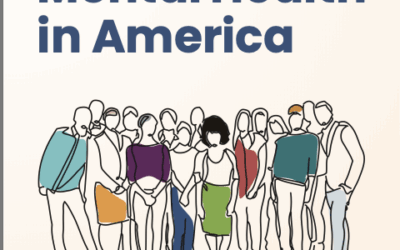The Fatal Drug Overdose Quarterly Report (4th Quarter Report) has been released by Virginia Department of Health’s Office of the Chief Medical Examiner. Fatal drug overdose has become the leading cause of death in Virginia with higher rates of drug overdose in certain regions of the state. Starting on page 8 this Quarterly Report details the drugs used: Cocaine, fentanyl, heroin, non-fentanyl opioids, and benzodiazepines (see Drugabuse.gov.
Some of these drugs are commonly known and have received a lot of prevention-attention in social policies, laws, and community practices. However, there are drugs, even if they have a “street name,” that are beginning to receive more attention—prescription drugs. It has been commonly believed that only illegal drugs should be criticized and used in “just say no (to drugs)” teachings and policies. Prescription drugs have traditionally been considered less harmful because they (for many people) are legally accessible. Thankfully, National Institute on Drug Abuse emphasizes prescription drug use and prescription drug abuse. This illustrates how prescription drug misuse, overuse, and addiction are receiving more attention from drug use coalitions, with law enforcement, within and across communities, and in research.
Opioid addiction has been declared a “public health emergency” by Virginia State Health Commissioner Marissa J. Levine. Levine is among the health professionals advocating being able to obtain naxolone without a prescription. Both illegal drugs and prescription drugs have become discussed for overuse, addiction, and overdose. Increasingly, organizations, communities, and legislators are petitioning doctors and pharmacies to reduce “shopping” and prevent people being prescribed medications rather than other less-intrusive methods to reduce mental and physical pains.
The Quarterly Report published by Virginia Department of Health’s Office of the Chief Medical Examiner provides data connected with circumstances including the school-to-prison-pipeline which Virginia Delegate Mike Mullin is pushing to change; employment, family, and legal issues; and mental health and physical health. Substance addiction and substance abuse are considered contributing to and resulting from diagnosable mental health condition. There are people who use substances to self-heal, self-medicate, and downplay a mental health condition (such as schizophrenia). This is an example of people who have both a mental health condition and substance abuse (see also.
Mental health and substance abuse are daily struggles for many people and it influences every aspect of people’s lives. This is not a light switch that can be turned on/off nor is this just about being “strong” and self-confident. There is a common misconception that mental health and substance addiction are exaggerated and only influence “those types of people”. This misconception is one of the reasons mental health conditions and substance use are often stigmatized and people are shamed. It is important to clarify such stigmatization and shaming do not cure or heal. People are also not deterred. Instead, people are more likely to engage in a “downward spiral” of secrecy that can be quite dangerous and detrimental.
This is why Mental Health America of Virginia and Harm Reduction Coalition (HRC) encourage open discussion and resources pertaining to mental health and substance use. Substance use programs and mental health programs need funding to increase availability for large populations across regions and across demographics. With increased voices in Virginia and across the country, we will develop more preventive measures to address mental health conditions and substance abuse rather than assuming individuals, families, and communities can figure this out by themselves. It is better to find more proactive measures than to mostly rely on reactive measures.
By Kimya N. Dennis
Opinions in Guest Postings are those of the author and do not necessarily represent MHAV.
 Kimya N. Dennis is a sociologist and criminologist originally from Richmond, VA. She lives in Winston-Salem, NC and does interdisciplinary work on mental health, suicide and suicidal self-harm, and reproductive choices. Dr. Dennis’s work reaches diverse audiences and particularly underserved populations. She is on the board of directors for The Mental Health Association in Forsyth County, North Carolina chapter of American Foundation for Suicide Prevention, and LEAD Girls of NC. Dr. Dennis is faculty and the creator and Coordinator of the Criminal Studies program in the Department of Sociology and Criminal Studies at Salem College in Winston-Salem, NC. She can be contacted: www.kimyandennis.com – kimya@kimyandennis.com
Kimya N. Dennis is a sociologist and criminologist originally from Richmond, VA. She lives in Winston-Salem, NC and does interdisciplinary work on mental health, suicide and suicidal self-harm, and reproductive choices. Dr. Dennis’s work reaches diverse audiences and particularly underserved populations. She is on the board of directors for The Mental Health Association in Forsyth County, North Carolina chapter of American Foundation for Suicide Prevention, and LEAD Girls of NC. Dr. Dennis is faculty and the creator and Coordinator of the Criminal Studies program in the Department of Sociology and Criminal Studies at Salem College in Winston-Salem, NC. She can be contacted: www.kimyandennis.com – kimya@kimyandennis.com



